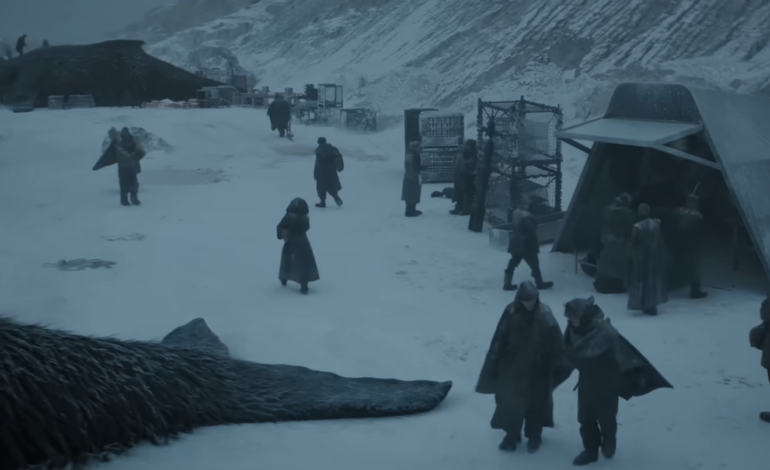

Directed by Richard J. Lewis and written by Monica Owusu-Breen and Jordan Goldberg, Episode 3 of Dune: Prophecy explores the origin story of Valya Harkonnen and the circumstances that led her and her sister, Tula Harkonnen, to join the Bene Gesserit.
The central theme of this episode revolves around the concept of strength—what it is, how it is perceived, and its ultimate cost. Strength is depicted not only as physical or political power but also as the inner resilience and moral convictions that define a person’s character. The episode explores the multifaceted nature of strength through the actions and beliefs of its characters, juxtaposing Valya Harkonnen’s ruthless ambition with the Bene Gesserit’s calculated schemes.
It challenges the audience to question whether true strength lies in domination and control or compassion and sacrifice. The narrative delves into the consequences of pursuing strength at the expense of humanity, highlighting how the relentless pursuit of power can lead to destruction and moral decay. This thematic exploration serves as a poignant commentary on the dynamics of power and its impact on individuals and societies.
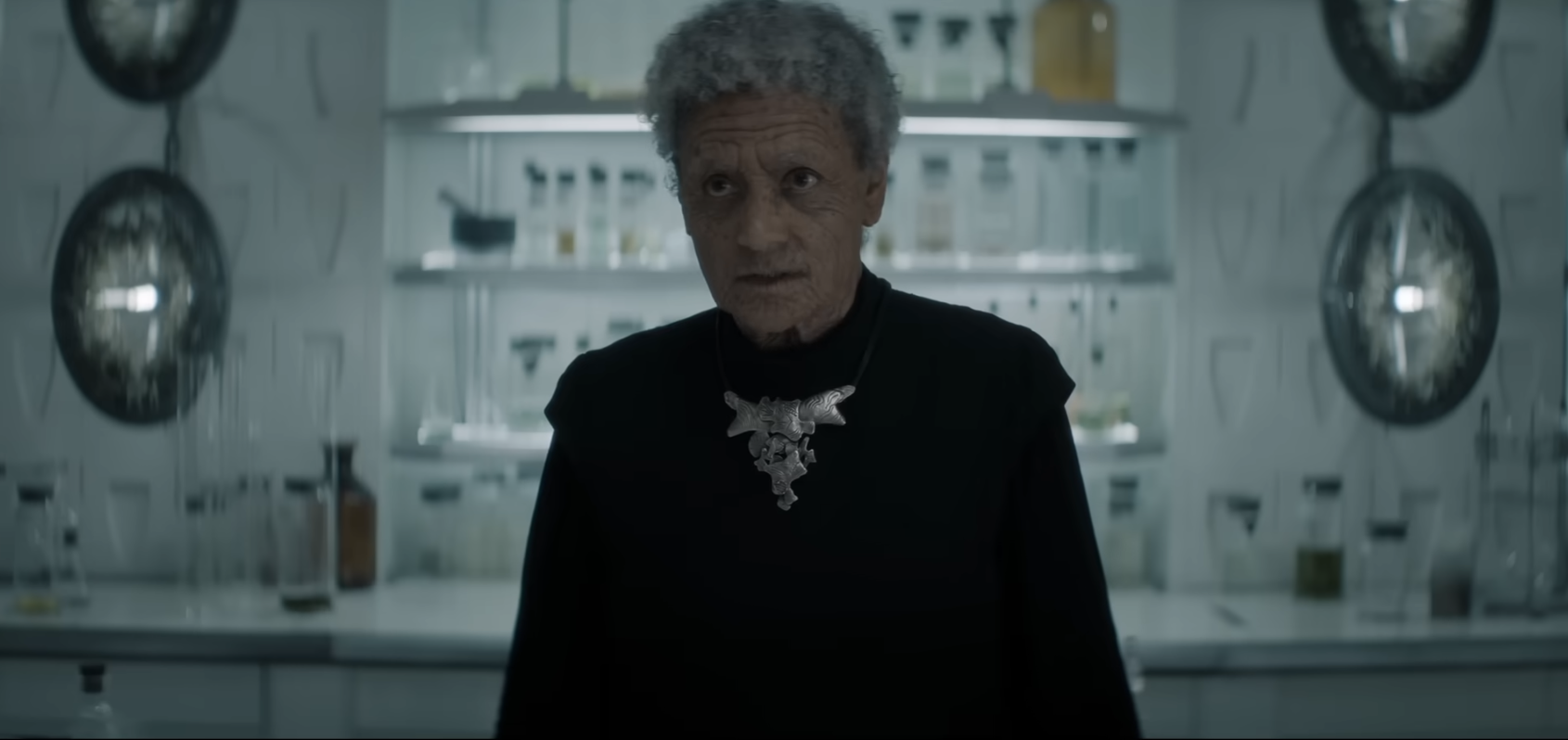

What is Strength?
Valya Harkonnen defines strength as power, wealth, and cunning schemes—a philosophy she believes her family and allies should embrace. However, this view of strength is ultimately destructive, bringing suffering to those who pursue it. The episode draws a stark comparison between this hollow pursuit of power and its catastrophic consequences, as exemplified by the long-term schemes of the Bene Gesserit and the atrocities of House Harkonnen. These actions eventually gave rise to tyrants like Paul Atreides and his son, Leto II, whose reigns brought humanity to the brink of destruction under the guise of saving it from tyranny and fear.
The episode posits that true strength lies not in power but in love—love for family, friends, and home. Yet, love as a source of strength is rare in the Known Universe of Dune, overshadowed by the relentless pursuit of power. This absence highlights the loss of humanity and morality in the universe, a loss epitomized by the conflicts and tragedies within the story.
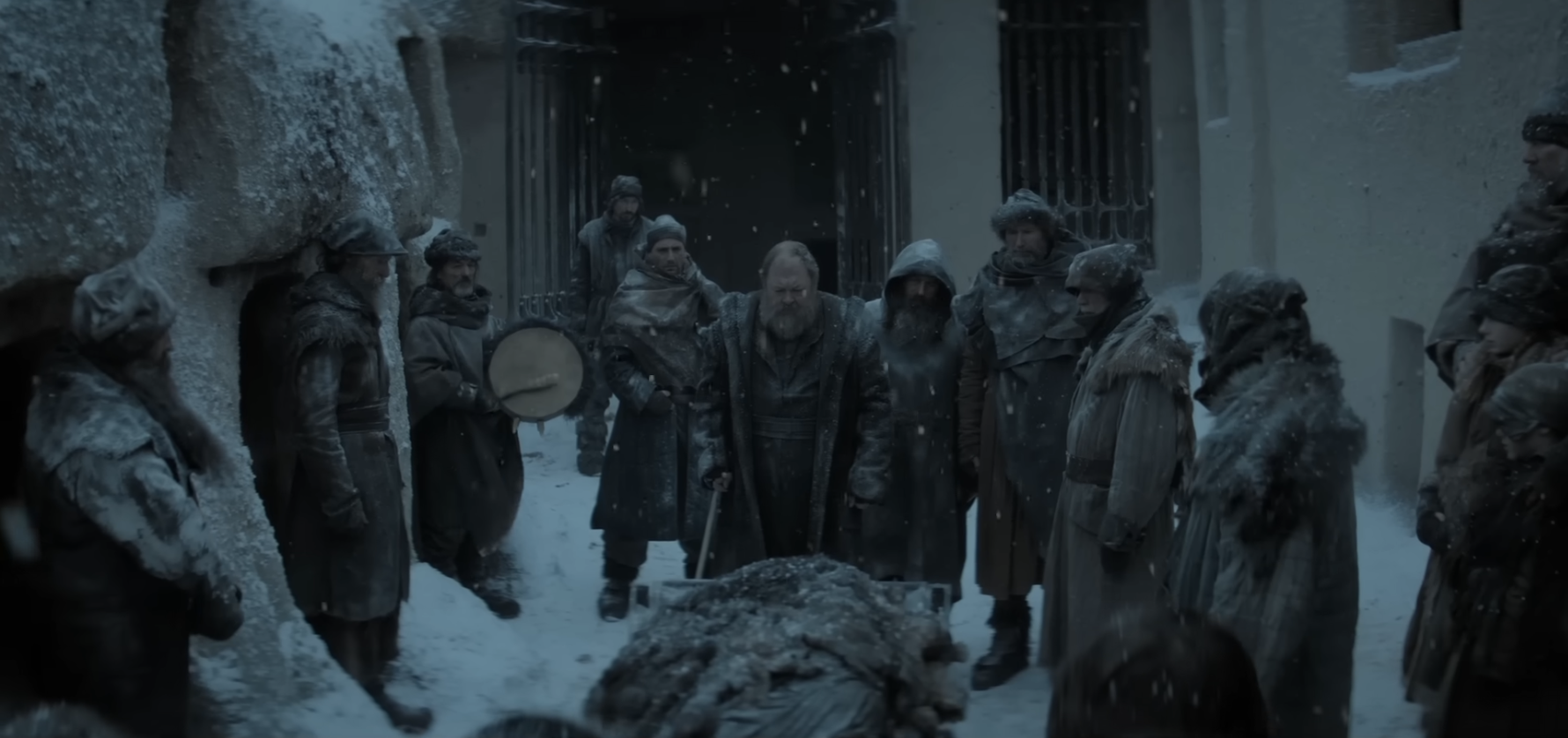

House Harkonnen
Before joining the Bene Gesserit, Valya (Emily Watson and Jessica Barden) and Tula (Olivia Williams and Emma Canning) lived on Lankiveil, a cold maritime planet that served as House Harkonnen’s seat of power before their rise to infamy on Giedi Prime. At this time, the Harkonnens were a relatively warm and close-knit family, earning their livelihood through the export of whale fur. Valya’s family included her brother Griffin (Earl Cave), her uncle Evgeny (Mark Addy), her father Vergyl (David Bark-Jones), and her mother Sonia (Polly Walker). Despite their modest life, Valya’s dissatisfaction with her family’s lack of power and wealth in the Imperium sowed the seeds of discord.
The family’s dynamics changed irreparably with the death of Griffin, the kindest and most innocent member of the family. Valya and Griffin shared a close bond, strengthened by an incident where Valya saved him from drowning in a freezing river. Griffin’s death, caused by Vorian Atreides, shattered Valya’s humanity. Vorian’s “cruelty” didn’t end there; he returned Griffin’s corpse to the Harkonnens “out of spite” and forced Valya to leave her family and join the Bene Gesserit on Wallach IX.
The truth, however, is that Vorian did not cause Griffin’s death. It was the twins Hila and Andros, children of Agamemnon, who killed Griffin and attempted, but failed, to kill Vorian. Wracked with remorse, Vorian sent Griffin’s body along with substantial monetary compensation to House Harkonnen. Despite this gesture, it did little to assuage their grief, especially Valya’s, over Griffin’s death.
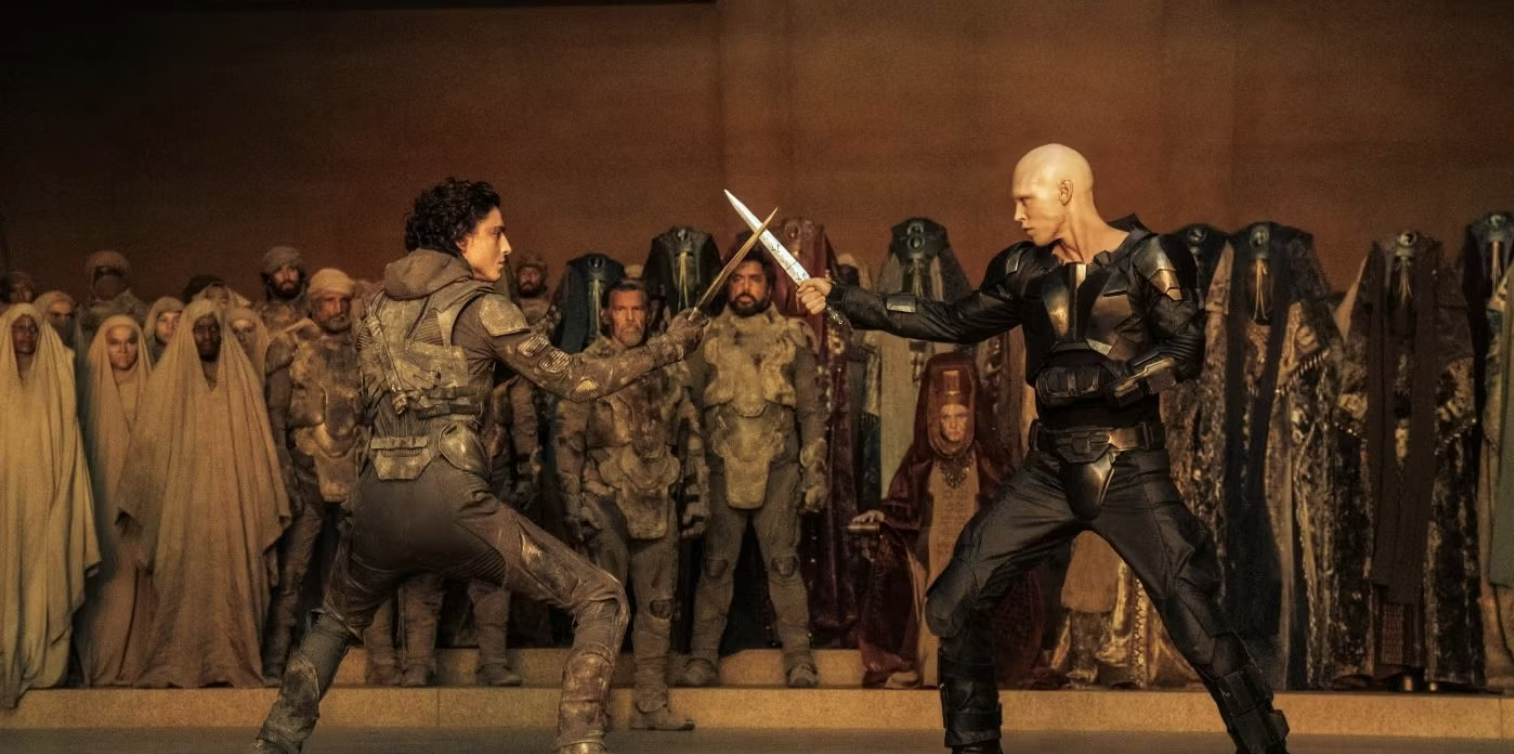

The Atreides-Harkonnen Feud
The bitter feud between House Atreides and House Harkonnen traces back to the Butlerian Jihad. Supreme Commander Vorian Atreides mentored Abulurd Harkonnen, forging a bond as they fought against the thinking machines. However, this friendship dissolved during the Battle of Corrin, where Vorian’s willingness to sacrifice two million human slaves for victory clashed with Abulurd’s moral refusal. Abulurd’s sabotage to avoid genocide led to a bloodier battle than Vorian had planned, enraging him.
In retaliation, Vorian branded House Harkonnen as cowards, banished them from the League of Nobles (Landsraad Predecessors), and ensured House Atreides took credit for the Harkonnens’ sacrifices during the Jihad. This betrayal planted the seeds of hatred that defined the two houses for generations. Exiled to Lankiveil, Abulurd’s descendants, including Valya, grew up harboring a deep resentment toward House Atreides.
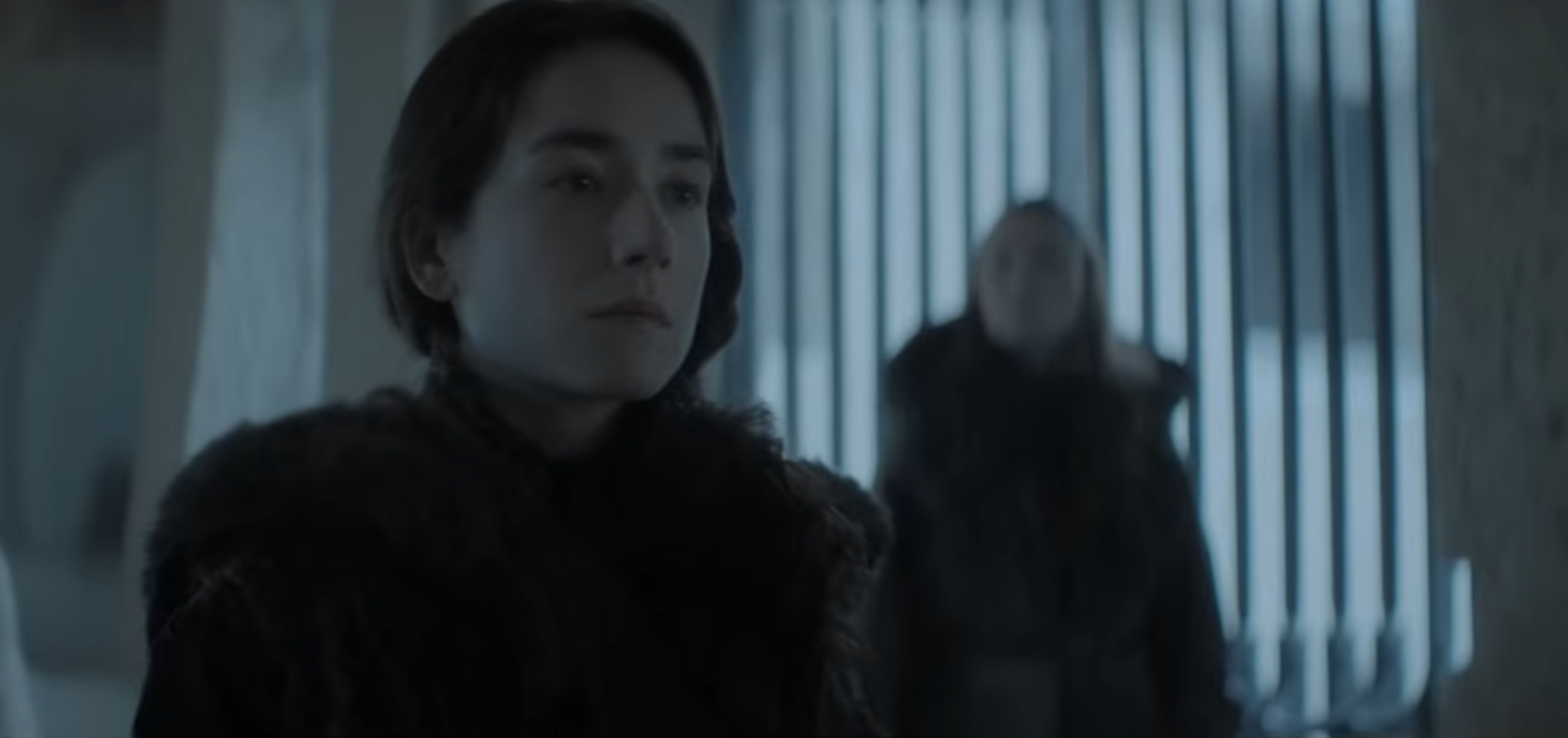

Evil is Not Born, It’s Made
Griffin’s death marked a turning point for Valya, driving her to seek vengeance against House Atreides, restore her family’s strength, and bring peace and order to the Imperium under her influence through the Bene Gesserit. Vorian’s early hatred and cruelty towards Abulard not only destroyed the Harkonnens’ reputation but also paved the way for future atrocities committed by both houses. The deaths and suffering caused by the Bene Gesserit’s schemes and the Atreides-Harkonnen feud can all be traced back to Vorian’s actions.
The episode underscores that Vorian Atreides, despite his lineage, embodied the traits of a “monster,” and in doing so, he created one in Valya Harkonnen. While House Atreides should not be judged solely by Vorian’s actions, his choices highlight the destructive potential of unchecked power and hatred. Ultimately, both Vorian and Valya serve as cautionary tales of how the pursuit of strength without compassion can lead to ruin.
Rating: 9/10
